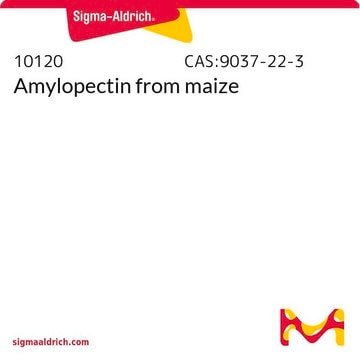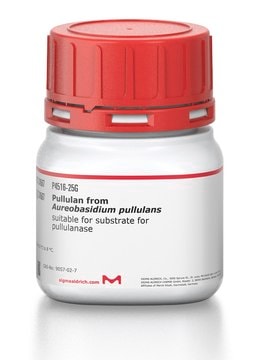Recommended Products
biological source
potato
Quality Level
form
powder
impurities
<25% water (Karl Fischer)
solubility
water: 7.69 mg/mL, clear to hazy, colorless to faintly yellow
storage temp.
room temp
InChI
1S/C30H52O26/c31-1-6-11(35)13(37)19(43)28(50-6)55-24-9(4-34)52-27(21(45)16(24)40)48-5-10-25(56-29-20(44)14(38)12(36)7(2-32)51-29)17(41)22(46)30(53-10)54-23-8(3-33)49-26(47)18(42)15(23)39/h6-47H,1-5H2/t6-,7-,8-,9-,10-,11-,12-,13+,14+,15-,16-,17-,18-,19-,20-,21-,22-,23-,24-,25-,26+,27+,28-,29-,30-/m1/s1
InChI key
WMGFVAGNIYUEEP-WUYNJSITSA-N
Looking for similar products? Visit Product Comparison Guide
Application
Other Notes
Storage Class Code
11 - Combustible Solids
WGK
WGK 3
Flash Point(F)
Not applicable
Flash Point(C)
Not applicable
Personal Protective Equipment
Certificates of Analysis (COA)
Search for Certificates of Analysis (COA) by entering the products Lot/Batch Number. Lot and Batch Numbers can be found on a product’s label following the words ‘Lot’ or ‘Batch’.
Already Own This Product?
Find documentation for the products that you have recently purchased in the Document Library.
Customers Also Viewed
Our team of scientists has experience in all areas of research including Life Science, Material Science, Chemical Synthesis, Chromatography, Analytical and many others.
Contact Technical Service




